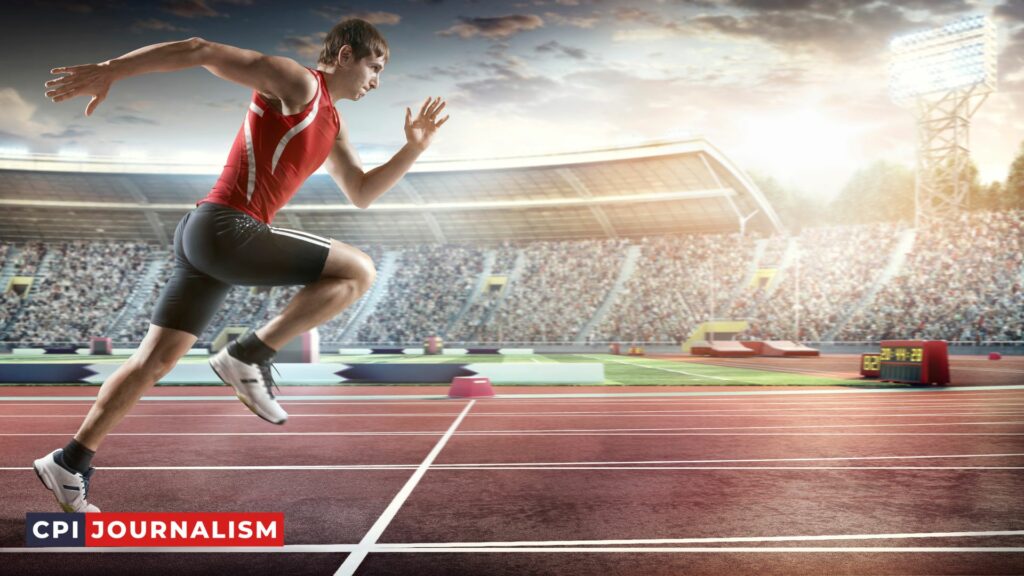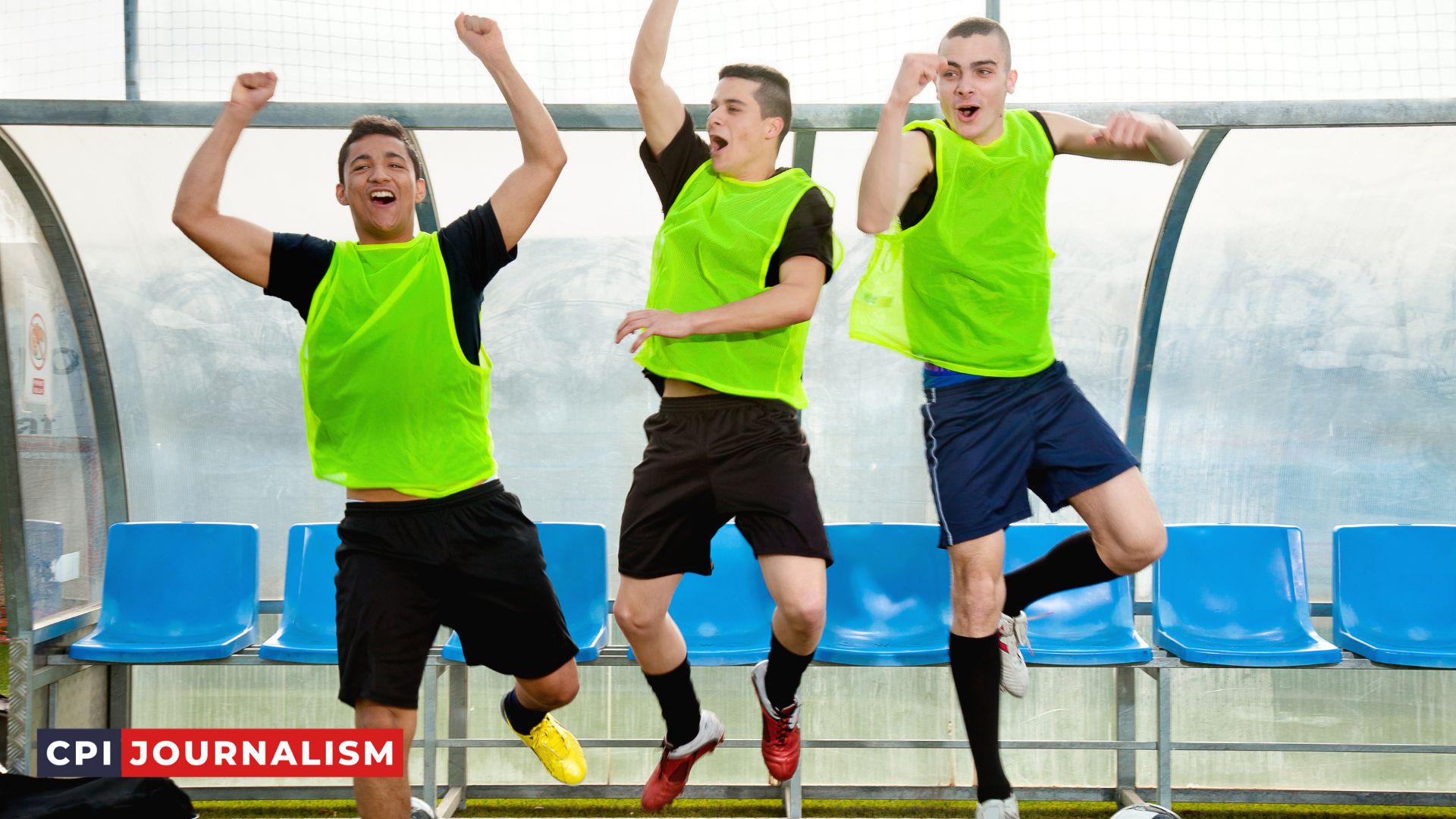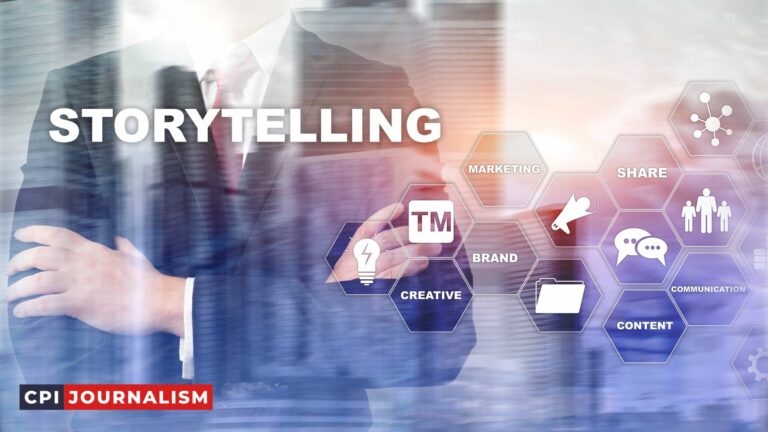How Do Sports Journalists Build Relationships With Athletes And Sports Teams?
As an experienced sports journalist, I know how important it is to build strong relationships with athletes and sports teams.
Having a good relationship with these individuals and teams can be the difference between getting the scoop and missing out on a great story.
In this article, I will explore how sports journalists can build lasting relationships with athletes and sports teams that will help them do their job more effectively.
I will share my insights and experience on the best strategies for forming these relationships and discuss the benefits they bring to the journalist.
A. Overview of the Role of Sports Journalists
The role of sports journalists is to report on sports events, teams, and athletes. They must be able to form relationships with athletes and sports teams in order to have access to the information and insights needed to write their stories.
It is important for sports journalists to have strong communication skills and an understanding of the sports industry to be successful in their jobs.
Sports journalists need to be able to write compelling stories that will engage the readers. They must have an eye for detail and an ability to accurately report on the facts while also capturing the emotion of the event.
Sports journalists must also be able to work with deadlines and be able to think on their feet in order to quickly respond to any changes or developments in the game.
In order to build relationships with athletes and sports teams, sports journalists must be professional and respectful. They must be willing to take the time to learn about the team and the athletes they are covering.
This includes researching the team, the players, and any past events or achievements. Sports journalists must also be aware of the team’s policies and any ethical considerations that may need to be taken into account when reporting.
Finally, sports journalists must be able to network with other sports journalists and media outlets in order to gain access to the latest news and information.
This can involve attending press conferences, interviewing players or coaches, and attending events. It is important for sports journalists to establish a good reputation in order to build relationships with athletes and teams.
B. Benefits of Building Relationships
Building relationships with athletes and sports teams is essential for any sports journalist. Not only does it help you get access to exclusive stories, it also gives you a chance to gain the trust and respect of the people in the industry.
Here are some of the benefits of building relationships with the athletes and teams:
1. Access to Exclusive Information: Building a relationship with an athlete or team gives you an advantage in getting exclusive information which you can use to create content.
This can be a great asset as it not only helps you get ahead of your competitors but also helps you create a more complete and accurate story.
2. Deeper Understanding: By getting to know the athletes or teams, you can gain a better understanding of their motivations, strategies and personalities.
This can help you create more insightful pieces which can be very beneficial in the long run.
3. Networking Opportunities: Building relationships with athletes and teams can also open up networking opportunities for you.
You may be able to tap into their contacts and resources which can help you find new sources and stories.
4. Trust and Respect: Building relationships with athletes and teams can also help you gain their trust and respect. This can be invaluable as it can help you develop a better rapport with the people you’re working with and make it easier to get the information you need.
II. Building Relationships with Athletes
As a sports journalist, it is essential to build relationships with athletes and sports teams. This will not only help you get access to exclusive stories, but also give you the opportunity to better understand the players and teams.
Here are some tips for building relationships with athletes and sports teams:
1. Make Yourself Visible: One of the best ways to start building relationships with athletes and teams is to make yourself visible in the sports world.
Attend games, press conferences, and other events related to the team or athlete you are covering. This will help you establish yourself as a sports journalist and make it easier to approach players and teams for interviews.
2. Be Respectful: It is important to show respect to athletes and teams when you are building relationships. Always be polite and professional when communicating with players and teams. Respect their time and don’t be overly pushy when asking questions or requesting interviews.
3. Show Interest: Showing a genuine interest in the team and players you are covering will help you build relationships with them.
Ask questions that show you are knowledgeable about the team and their players. This will demonstrate that you are an informed journalist and will help you gain the trust of the athletes and teams.
4. Remain Neutral: As a sports journalist, it is important to remain neutral when reporting on sports. Avoid showing any bias towards certain teams or players. This will help you build relationships with all sides, not just one.
5. Follow Up: Following up with the athletes and teams you have interviewed is a great way to build relationships.
Send them a thank you email or a brief note to let them know you appreciate their time. This will show them that you are professional and will help you build a stronger relationship.
By following these tips, you’ll be able to build strong relationships with athletes and teams, which will help you get access to exclusive stories and create a better understanding of the players and teams you are covering.
A. Establishing Rapport
Establishing a rapport with athletes and sports teams is essential for sports journalists. It is the foundation upon which all other relationships and interactions will be built.
It is important to be friendly and professional when first meeting an athlete or a sports team. A journalist must be able to build trust and demonstrate knowledge of the sport, its players, and the team.
When meeting an athlete or a sports team for the first time, a journalist should take the time to introduce themselves and explain the purpose of their visit.
It is important to show respect for the athlete or team and to demonstrate that the journalist is knowledgeable about the sport, its players, and the team.
The journalist should also be prepared to answer any questions the athlete or team may have about the journalist’s background and experience.
In addition, it is important to be aware of any potential biases that may exist and to address them openly and honestly with the athlete or team.
It is essential to be mindful of any cultural or language barriers that may exist and to take the time to explain any unfamiliar terms or concepts.
Finally, it is important to demonstrate an understanding of the athlete’s or team’s goals and objectives and to show a genuine interest in helping them achieve their goals.
By taking the time to establish a rapport with athletes and teams, sports journalists will be better able to build positive and productive relationships.
This, in turn, will help journalists to gain access to information, interviews, and stories that will help to make their reporting more accurate and comprehensive.
B. Developing Trust
Trust is the foundation upon which all successful relationships are built, and this is especially true in sports journalism.
Establishing trust with athletes and sports teams is critical in order to gain access to exclusive information and interviews. Here are a few tips for developing trust:
1. Respect: Respect the athletes, coaches, and teams that you cover. Show them that you understand the hard work and dedication it takes to reach the highest levels of their sport.
2. Patience: It takes time to build trust, and it is important to be patient. Don’t rush the process, and give the athletes and teams you cover the space to get to know you and develop a relationship.
3. Honesty: Be honest in your reporting and in your dealings with athletes and teams. They will appreciate your integrity and will be more likely to trust you.
4. Professionalism: Maintain a high level of professionalism in all interactions with athletes and teams. Show that you take your job seriously and that you are committed to producing quality journalism.
5. Consistency: Demonstrate consistency in your reporting. If you are reliable and consistent, athletes and teams will know that they can trust you to provide reliable information and honest reporting.
These tips are just a few of the ways that experienced sports journalists have built trust with the athletes and teams they cover.
Developing trust will take time, but it is essential if you want to have successful and lasting relationships in the sports world.
C. Understanding The Athlete’S Perspective
As a sports journalist, one of the most important skills you need to develop is the ability to understand the perspective of the athlete.
It is essential to build trust and rapport with the athletes you interview and cover. To do this, you must strive to understand the athlete’s motivations, their goals, and their values.
First, you should take the time to research the athlete and their team. Learn about their background, their personal story, and the challenges they face.
This can help you to better understand the athlete’s perspective and to create a more personal connection.
You should also attempt to build a relationship with the athlete. Make an effort to get to know them, to understand their career goals, and to show that you are genuinely interested in their success.
A good relationship with an athlete can open up a world of possibilities for the journalist, including exclusive content and interviews.
Finally, you should always strive to be respectful and treat the athletes fairly. Listen carefully to their answers and be mindful of their feelings.
Show that you are open to their point of view and be sensitive to any issues they may have. This will help you to create a strong, mutually beneficial relationship with the athletes.
D. Benefits of Building Relationships with Athletes
Building relationships with athletes and sports teams can be highly beneficial for any sports journalist. It can open up a wealth of opportunities and access to exclusive information that can help to create a more comprehensive and engaging story.

Here are a few of the key benefits of establishing relationships with athletes and teams:
1. Access to Exclusive Information: When a sports journalist has an established relationship with athletes and teams, they can gain access to exclusive information that is not available to the general public.
This can include insights into their daily lives, upcoming strategies, and even behind-the-scenes stories that can be used to create a more engaging and comprehensive story.
2. Opportunities for Interviews: Establishing relationships with athletes and teams can also open up opportunities for interviews. This is invaluable for any journalist, as it gives them the chance to ask questions that are both relevant and unique.
Interviews also provide an opportunity to build a deeper understanding of the subject and to get a first-hand account of events.
3. More Opportunities for Coverage: When a sports journalist has an established relationship with athletes and teams, they are more likely to be offered more coverage opportunities.
This could include access to events, press conferences, and even post-game interviews. This can be invaluable for any journalist, as it gives them the opportunity to capture the most up-to-date information and to create a more comprehensive story.
Overall, building relationships with athletes and sports teams can be highly beneficial for any sports journalist. It can open up a wealth of opportunities and provide exclusive access to information that can help to create a more engaging and comprehensive story.
III. Building Relationships with Sports Teams
Sports journalists must establish strong relationships with sports teams and their athletes in order to gain access to information and exclusive stories.
To do this, journalists must demonstrate their commitment to the team, their athletes, and the sport itself.
Here are a few tips for building relationships with sports teams and athletes:
1. Attend Games and Events: It is important for journalists to attend games and events, not just to cover them, but also to build relationships with teams and athletes.
Make sure to get to know team and athlete personnel, introduce yourself, and show your interest in the team, the athletes, and the sport.
2. Show Respect: Respect is key when building relationships with teams and athletes. Show respect for the team and its athletes by being professional and courteous.
Always treat team and athlete personnel with respect and make sure to give credit where credit is due.
3. Follow the Team: Show your dedication to the team by following them on social media, reading their press releases, and attending their games. This shows that you are committed to the team and are interested in their success.
4. Provide Valuable Content: Provide teams and athletes with valuable content, such as stories, interviews, and videos, that they can use to promote the team and its athletes. This will help to build trust and demonstrate your commitment to the team and its athletes.
5. Be Patient: Building relationships with teams and athletes takes time. Be patient and continue to demonstrate your commitment to the team and its athletes.
With time and dedication, you will be able to establish strong relationships with sports teams and their athletes.
A. Establishing Professional Connections
As a sports journalist, it’s essential to build relationships with athletes and sports teams so that you have access to the latest news and information. Establishing professional connections with athletes and sports teams can be difficult, but it’s worth the effort.
Here are a few tips on how to get started:
1. Reach out to the organization directly. Most sports teams and organizations have contact information listed on their website, so you can reach out to them directly. Introduce yourself and explain why you would like to connect with their organization.
2. Attend events and press conferences. This is an excellent way to build professional relationships with athletes and sports teams. Attending events and press conferences gives you a chance to meet people in person, ask questions, and gain insight into their organization.
3. Network with other journalists. Networking with fellow sports journalists can be a great way to build relationships with athletes and sports teams. You can join local or national journalism associations, attend events, and exchange contacts.
4. Develop a portfolio. Publishing your work is an excellent way to demonstrate your experience and expertise to athletes and sports teams. You can create a portfolio of your work, highlighting the stories you’ve written and the athletes and sports teams you’ve covered.
Building relationships with athletes and sports teams can take time and effort, but it’s necessary for any successful sports journalist.
By following the tips above, you can establish professional connections with the people and organizations you need to stay informed and up-to-date on the latest sports news.
B. Understanding The Team’S Goals
As a sports journalist, it is essential to understand the goals of the sports team or athlete you are covering. This understanding can come from various sources, such as interviews with the team or athlete, press releases, team websites, and even the team’s social media accounts.
The team’s goals can be broken down into two distinct categories: short-term goals and long-term goals. Short-term goals are those that the team is actively working towards and could achieve in a relatively short period of time.
These could include things like winning a championship, qualifying for a tournament, or even just making the playoffs. Long-term goals are those that the team hopes to achieve in the future, such as building a dynasty or developing a strong youth system.
Understanding these goals can help you to provide a more comprehensive coverage of the team or athlete. Knowing what the team is working towards will help you to ask more informed questions, as well as provide more in-depth analysis of their performance.
Additionally, understanding the team’s goals can help you to better understand the decisions they are making, such as personnel changes and coaching strategies.
Finally, understanding the team’s goals can help you to build a stronger relationship with them. By showing that you understand the team’s goals and objectives,
you will be viewed as more trustworthy and knowledgeable by the team and the fans. This in turn can lead to more access and better opportunities for coverage.
C. Developing a Reputation for Fairness
As a sports journalist, one of the most important things you can do to foster positive relationships with athletes and sports teams is to develop a reputation for fairness and accuracy.
This means ensuring that all of your reporting is well-researched, unbiased, and presented in an ethical manner.
It’s important to be consistent in your reporting, so that athletes and teams know that they can trust you to give them a fair shake.
You should also be mindful of any conflicts of interest that might arise, and take steps to address them. For example, if you have a personal relationship with an athlete or team, you should be transparent about it and make sure that it does not influence your reporting in any way.
Maintaining a high level of fairness and accuracy in your reporting is also critical for safeguarding your reputation.
If you are known for being reliable and trustworthy, athletes and teams will be more likely to come to you with stories and information, and the public will be more likely to trust your reporting.
In addition, adhering to a strict ethical code can help you build positive relationships with athletes, teams, and other journalists.
Establishing yourself as a fair and trustworthy reporter can open up many opportunities for collaboration and networking, which can be invaluable for both your career and your relationships with athletes and teams.
D. Benefits of Building Relationships with Sports Teams
Building relationships with sports teams is essential for sports journalists, as it allows the journalist to gain better access to the team, which can lead to higher quality information about the team and their players.
Having access to the team also gives the journalist a better understanding of the team’s culture and the dynamics between the players, coaches, and management.
Furthermore, having good relationships with the team can lead to a better rapport with the players. This can help to create a more relaxed atmosphere when conducting interviews and make it easier to get honest answers from the players.

Additionally, establishing trust with the players can help the journalist gain access to exclusive information that isn’t available to the general public.
In addition, having good relationships with the team can provide the journalist with a better understanding of the team’s strategies and upcoming plans.
This can help the journalist to be more informed when writing articles, as they will be able to provide in-depth analysis that is based on accurate information.
Finally, having strong relationships with sports teams can lead to increased opportunities for the journalist. For example, the journalist may be invited to attend exclusive press conferences or be granted access to exclusive events. This can help to further a journalist’s career and boost their professional profile.
IV. Conclusion
At the end of the day, building relationships with athletes and sports teams takes a lot of effort and dedication from the journalist. It requires hard work, persistence, and patience.
The relationships that are built can be incredibly valuable and rewarding. They can lead to access to exclusive stories, interviews, and other opportunities.
For any journalist hoping to build relationships with athletes and sports teams, the most important thing is to establish trust. This comes from being professional and reliable.
Showing respect for the athlete, their team and their sport is also critical for building a strong relationship.
Finally, having a good understanding of the sport itself is key for any journalist. Knowing the key players, the rules and regulations, as well as the latest news and trends all help to establish credibility and trust with athletes and teams.
Building relationships with athletes and sports teams takes time, but the rewards are well worth it. When all the pieces are put together, a successful relationship can be established and a successful career in sports journalism can be achieved.
A. Summary of the Benefits of Building Relationships
Building relationships with athletes and sports teams can bring many benefits to sports journalists. Firstly, it can give journalists access to information and stories that they otherwise would not have.
Through building relationships, journalists can gain exclusive interviews, access to events and exclusive quotes from key players in the sports world.
Secondly, building relationships with athletes and sports teams can help to establish a journalist’s credibility and reputation in the sports world.
As journalists build relationships and become trusted sources for the athletes and teams, their reputation will grow and they will be seen as more reliable and trustworthy.
Thirdly, building relationships can help journalists to gain insight into the inner workings of the sports world.
Through building relationships, journalists can gather information on the latest news and trends in the sports world and use this information to inform their stories.
Finally, building relationships with athletes and sports teams can help to create a network of contacts. As journalists build relationships, they will be able to easily connect with other journalists, athletes, and teams to collaborate on stories and gain access to exclusive information.
This can be a great resource for journalists as they continue to pursue their career in sports journalism.
B. Final Thoughts On The Role Of Sports Journalists False
As a sports journalist, it is essential to understand the importance of building relationships with athletes and sports teams. Sports journalists should strive to be trustworthy, reliable, and knowledgeable about their topics.
It is also important to be open to feedback and criticism, as it can help you become a better journalist. It is also important to remember that the relationship between a journalist and an athlete or team is not a one-way street.
Athletes and teams should also take the time to get to know the journalist, and be willing to provide honest, helpful feedback.
Ultimately, it is important for sports journalists to remember that their role is to report accurately, fairly, and objectively on the stories and events that take place in the sports world.
By building relationships with athletes and teams, journalists can gain valuable insight into the stories and events they cover.
This insight can help them create better, more accurate stories that provide readers with a better understanding of the sports world.







